Calorie Calculator for Bodybuilders: How to Calculate BMR, TDEE, and Optimize Macronutrients
As bodybuilding enthusiasts, we know that achieving our fitness goals hinges on more than just lifting weights. Proper nutrition plays a crucial role, and at the heart of it all lies the concept of calorie management. That's where a calorie calculator for bodybuilding comes into play. By understanding and controlling our daily calorie intake, we can optimize our efforts to gain muscle, lose fat, or maintain our current physique.
In this article, we'll dive into the world of calorie calculations for bodybuilders. We'll explore how to determine our daily calorie needs, break down macronutrients, and adjust our intake to meet specific goals. Whether you're looking to bulk up, cut down, or maintain your weight, we've got you covered. By the end, you'll have the knowledge to use a daily calorie intake calculator effectively and tailor your nutrition plan to your bodybuilding journey.
Table of Contents
Understanding Your Daily Calorie Needs
To effectively use a calorie calculator for bodybuilding, we need to grasp the concept of daily calorie needs. This understanding forms the foundation for achieving our fitness goals, whether it's building muscle, losing fat, or maintaining our current physique
Basal Metabolic Rate (BMR)
Our journey begins with the Basal Metabolic Rate (BMR). This is the minimum number of calories our body needs to function while at complete rest. It's the energy required for essential life-sustaining functions like breathing, circulating blood, and maintaining organ function. For most of us, BMR accounts for about 60-75% of our total daily energy expenditure.
Several factors influence our BMR:
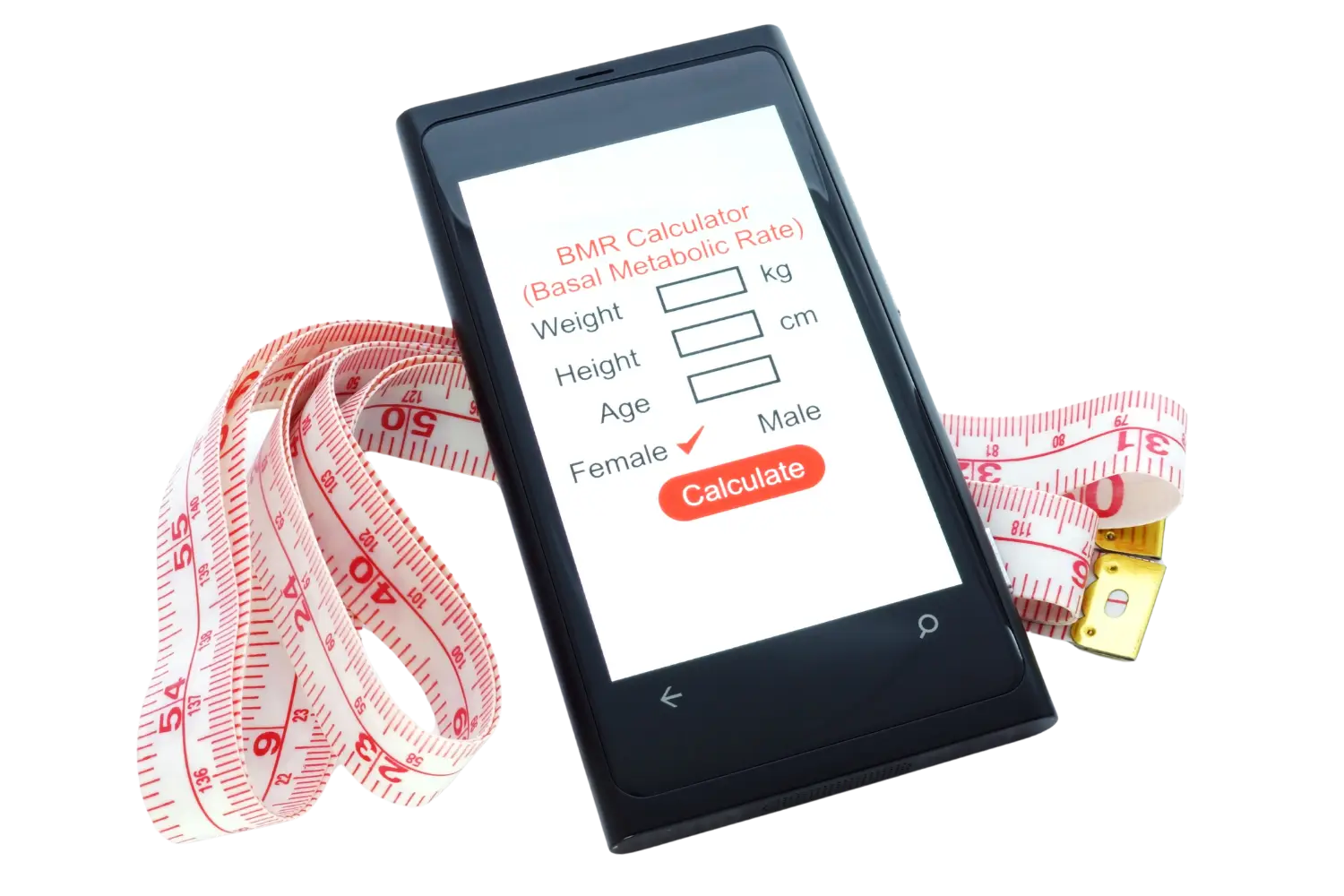
• Muscle mass: More muscle means a higher BMR. • Age: As we get older, our BMR tends to decrease. • Genetics: Some people naturally have a higher or lower BMR. • Body temperature: A higher internal temperature can increase BMR.
To calculate BMR, we often use formulas like the Mifflin-St Jeor Equation or the Harris-Benedict Equation. These take into account our age, height, weight, and sex.
For example, the Mifflin-St Jeor Equation for men is:
BMR = 10 × weight (kg) + 6.25 × height (cm) - 5 × age (years) + 5
And for women:
BMR = 10 × weight (kg) + 6.25 × height (cm) - 5 × age (years) - 161
Example:
If your Input Data
- Weight: 70 kg
- Height: 175 cm
- Age: 30 years
- Gender: Male
Then BMR Calculation (Male):
88.362 + (13.397 × 70) + (4.799 × 175) − (5.677 × 30)
= 88.362 + 937.79 + 839.825 − 170.31 = 1695.67 calories/day
Total Daily Energy Expenditure (TDEE)
While BMR is crucial, it's not the whole picture. Our Total Daily Energy Expenditure (TDEE) is the total number of calories we burn in a day, including our BMR plus the energy we use for all our daily activities and exercise. TDEE is what we really need to focus on when using a calorie calculator for bodybuilding.
TDEE includes:
- Basal Metabolic Rate (BMR)
- Energy used for physical activities (both planned exercise and daily movements)
- Thermic effect of food (energy used to digest and absorb nutrients)
- Non-exercise activity thermogenesis (NEAT) - energy used for activities like fidgeting or standing
"To maintain your weight, your calorie intake should equal your TDEE."
Activity Level Multipliers
To calculate our TDEE, we multiply our BMR by an activity factor. This factor varies based on how active we are throughout the day. Here's a general guide:
• Sedentary (little to no exercise): BMR × 1.2
• Lightly active (light exercise 1-3 days/week): BMR × 1.375
• Moderately active (moderate exercise 3-5 days/week): BMR × 1.55
• Very active (hard exercise 6-7 days/week): BMR × 1.725
• Extra active (very hard exercise & physical job): BMR × 1.9
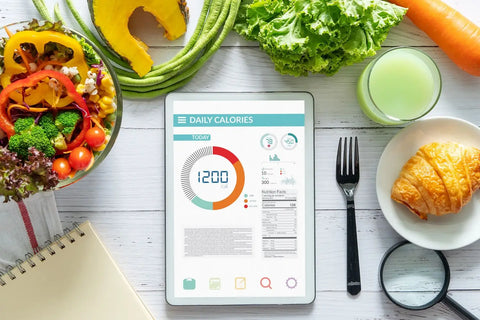
It's important to be honest about our activity level when using these multipliers. Overestimating can lead to consuming too many calories, while underestimating might result in not eating enough to support our bodybuilding goals.
Remember, these calculations provide estimates. Our actual energy needs can vary day to day and may change as we progress in our fitness journey. It's crucial to monitor our progress and adjust our calorie intake accordingly.
By understanding our BMR and TDEE, we're better equipped to use a calorie calculator for bodybuilding effectively. This knowledge allows us to create a nutrition plan that aligns with our goals, whether we're looking to build muscle, lose fat, or maintain our current physique.
Macronutrients for Bodybuilding
Now that we understand our daily calorie needs, it's time to break down those calories into macronutrients. For bodybuilding enthusiasts, getting the right balance of protein, carbohydrates, and fats is crucial for muscle growth and overall performance.
Macronutrients are the nutrients our body needs in larger amounts to function properly. They provide energy and play essential roles in various bodily functions. The three main macronutrients are:
- Protein: Essential for muscle repair and growth.
- Carbohydrates: The body's primary energy source, especially during workouts.
- Fats: Important for hormone production and overall health.
"Your diet is a bank account. Good food choices are good investments"
Protein Requirements
Protein is the cornerstone of muscle building. It helps repair and maintain muscle tissue, making it essential for bodybuilders. The current recommended dietary allowance (RDA) for protein is 0.8 grams per kilogram of body weight. However, for those of us looking to build muscle, this isn't enough.
Research suggests that bodybuilders should aim for a higher protein intake. A good range to target is between 1.6 to 2.2 grams of protein per kilogram of body weight per day. This higher intake helps ensure we're getting enough amino acids to support muscle protein synthesis and recovery after intense workouts.
To put this into perspective, a 180-pound (81.8 kg) bodybuilder should aim for about 131 to 180 grams of protein daily. Good protein sources include lean meats, fish, eggs, dairy products, and plant-based options like beans, lentils, and soy products.
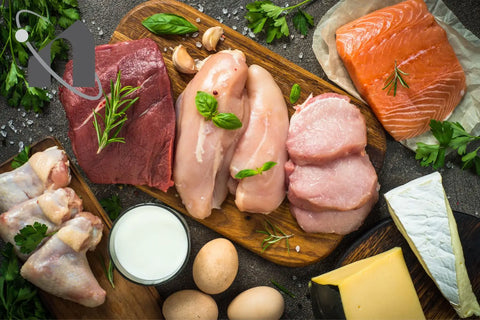
Carbohydrate Needs
Carbohydrates are our body's primary source of energy, especially during high-intensity workouts. They're crucial for maintaining glycogen stores in our muscles, which helps us power through tough training sessions.
For bodybuilders, carbohydrate intake can vary depending on individual goals and body type. Generally, a range of 3-7 grams of carbs per kilogram of body weight is recommended. This means our 180-pound bodybuilder might consume between 245 to 573 grams of carbs daily.
It's important to note that carb intake can be adjusted based on our specific goals. If we're looking to gain muscle mass, we might lean towards the higher end of this range. For fat loss phases, we might reduce our carb intake slightly.
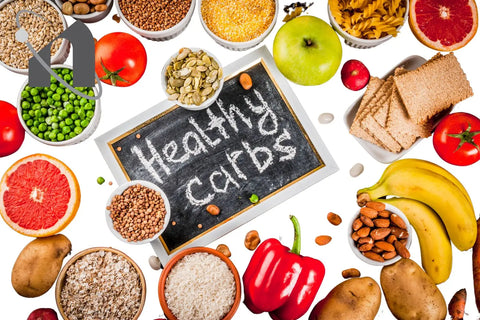
Fat Intake
While fats often get a bad rap, they're essential for hormone production, nutrient absorption, and overall health. For bodybuilders, fat intake should be moderate, typically ranging from 0.5 to 1.5 grams per kilogram of body weight per day.
This translates to about 20-35% of our total daily calories coming from fats. For our 180-pound bodybuilder, this could mean consuming between 41 to 123 grams of fat daily.
It's crucial to focus on healthy fat sources like avocados, nuts, seeds, olive oil, and fatty fish. These provide essential fatty acids that support overall health and can even help with recovery and reducing inflammation.
Remember, these macronutrient ranges are starting points. We might need to adjust them based on our individual responses, energy levels, and progress towards our goals. It's also worth noting that nutrient timing can play a role in optimizing our results. For example, consuming a meal high in carbs and protein shortly after our workout can help kickstart the recovery process.
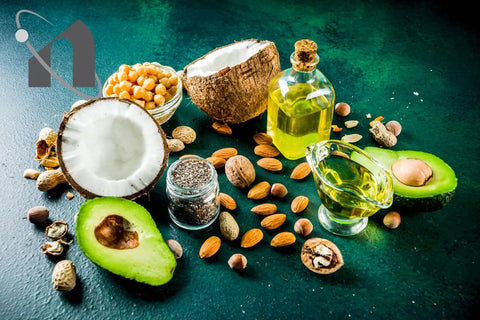
Using a calorie calculator for bodybuilding is just the first step. By fine-tuning our macronutrient intake, we can create a nutrition plan that fuels our workouts, supports muscle growth, and helps us achieve our bodybuilding goals. As we progress, we should monitor our results and make adjustments as needed to keep moving forward on our fitness journey.
Do you need a Personalized Diet Plan?
NuFit
Unlock your potential with NuFit's personalized fitness and diet plans, tailored for optimal results. Start your transformation journey today! View it here.

Adjusting Calories for Muscle Gain or Fat Loss
Bulking Calorie Surplus
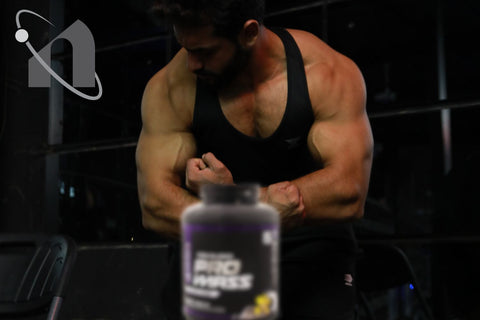
When it comes to gaining muscle, we need to create a calorie surplus. This means eating more calories than our body burns daily. However, it's crucial to find the sweet spot that helps us build muscle without packing on excessive fat.
For most of us, a good starting point is to aim for 100-400 calories above our maintenance intake per day. This moderate approach allows for steady muscle gain while minimizing unnecessary fat accumulation. Remember, our goal is to gain no more than 1 pound of fat for every pound of muscle we add.
To put this into perspective, if we're currently maintaining our weight at 2,500 calories per day, we might aim for 2,600-2,900 calories during our bulking phase. This surplus provides our body with the extra energy it needs to build new muscle tissue.
It's important to note that as we become more advanced in our training, we may need to adjust our surplus. More experienced bodybuilders often require a smaller calorie surplus to continue making gains without excessive fat gain.
Cutting Calorie Deficit

On the flip side, when we're looking to shed fat and get lean, we need to create a calorie deficit. This means consuming fewer calories than our body burns each day. The key here is to lose fat while preserving as much muscle mass as possible.
A good rule of thumb is to aim for a loss of 0.5 to 1% of our body weight per week. This slow and steady approach helps ensure that we're primarily losing fat, not muscle. For most of us, this translates to a calorie deficit of about 300-700 calories per day, depending on our current body weight.
Let's say we're currently maintaining our weight at 2,500 calories per day. During a cutting phase, we might reduce our intake to 1,800-2,200 calories per day. This deficit allows for steady fat loss while providing enough energy to fuel our workouts and maintain muscle mass.
It's crucial to monitor our progress and adjust as needed. If we're not seeing the scale move after 7-10 days, we may need to further reduce our calories by 10-20% to recreate a deficit.
Recomposition Strategies
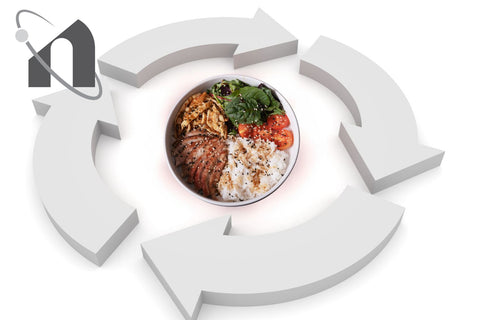
For those of us looking to build muscle and lose fat simultaneously, a strategy called body recomposition might be the answer. This approach involves maintaining our overall body weight while changing our body composition – increasing muscle mass and decreasing body fat.
One effective method for recomposition is calorie cycling. This involves eating more calories on training days and fewer on rest days. For example, we might eat at maintenance or a slight surplus on workout days to fuel muscle growth, and create a deficit on non-training days to promote fat loss.
Another key aspect of successful recomposition is maintaining a high protein intake. Aiming for 1.6 to 2.2 grams of protein per kilogram of lean body mass can help preserve muscle while in a calorie deficit.
Regardless of our specific goal – bulking, cutting, or recomposition – it's essential to remember that these are not one-size-fits-all approaches. We need to be patient and willing to adjust our calorie intake based on our individual responses and progress.
Using a calorie calculator for bodybuilding can be a helpful starting point, but it's crucial to track our progress and make adjustments as needed. This might involve tweaking our calorie intake, adjusting our macronutrient balance, or modifying our training routine.
By understanding how to manipulate our calorie intake for different goals, we can effectively use a calorie calculator to support our bodybuilding journey. Whether we're looking to pack on muscle, shed fat, or completely transform our body composition, the key lies in finding the right balance of calories and nutrients to support our goals.
Conclusion
Mastering the art of calorie management is a game-changer for bodybuilding enthusiasts. By getting a handle on our daily calorie needs and tweaking our macronutrient intake, we can fuel our bodies to build muscle, shed fat, or maintain our current physique more effectively. Remember, these calculations are just starting points - it's crucial to keep an eye on our progress and make adjustments as we go along.
To kick-start your journey towards smarter nutrition, why not give Nutrascia's calorie calculator a try? It's a handy tool to get you going. As we continue on our fitness path, let's keep in mind that consistency is key. By sticking to our calorie goals and staying committed to our training, we're setting ourselves up for success in our bodybuilding endeavors. Here's to making gains and reaching our fitness goals!
Frequently Asked Questions
What is Basal Metabolic Rate (BMR)?
BMR is the number of calories your body needs to function at rest.
How do I adjust calories for muscle gain?
To gain muscle, increase your calorie intake by 10-20% above your TDEE.
Key Takeaways
- Calculate your Basal Metabolic Rate (BMR) first.
- Understand your Total Daily Energy Expenditure (TDEE).
- Adjust calories based on your fitness goals.

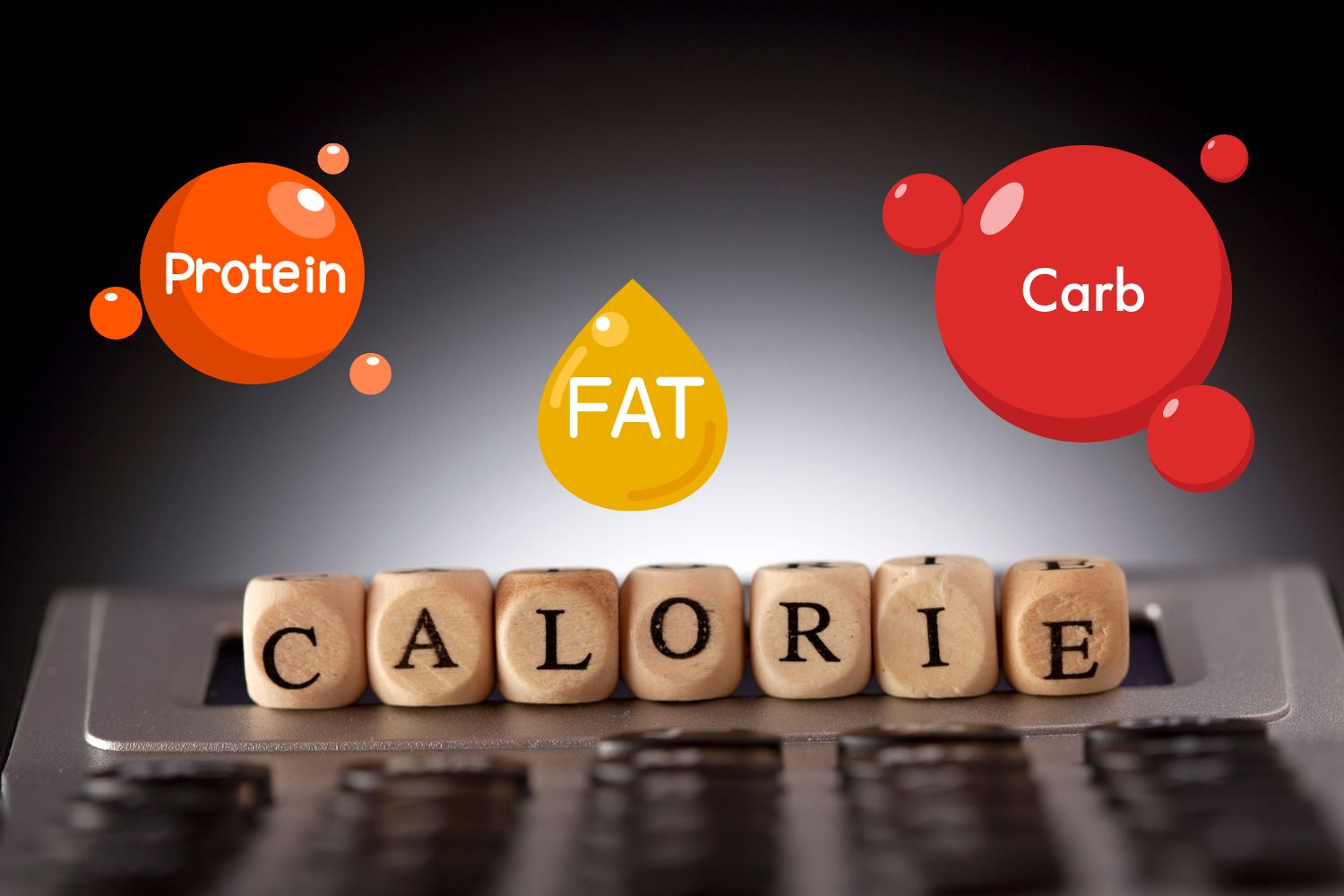

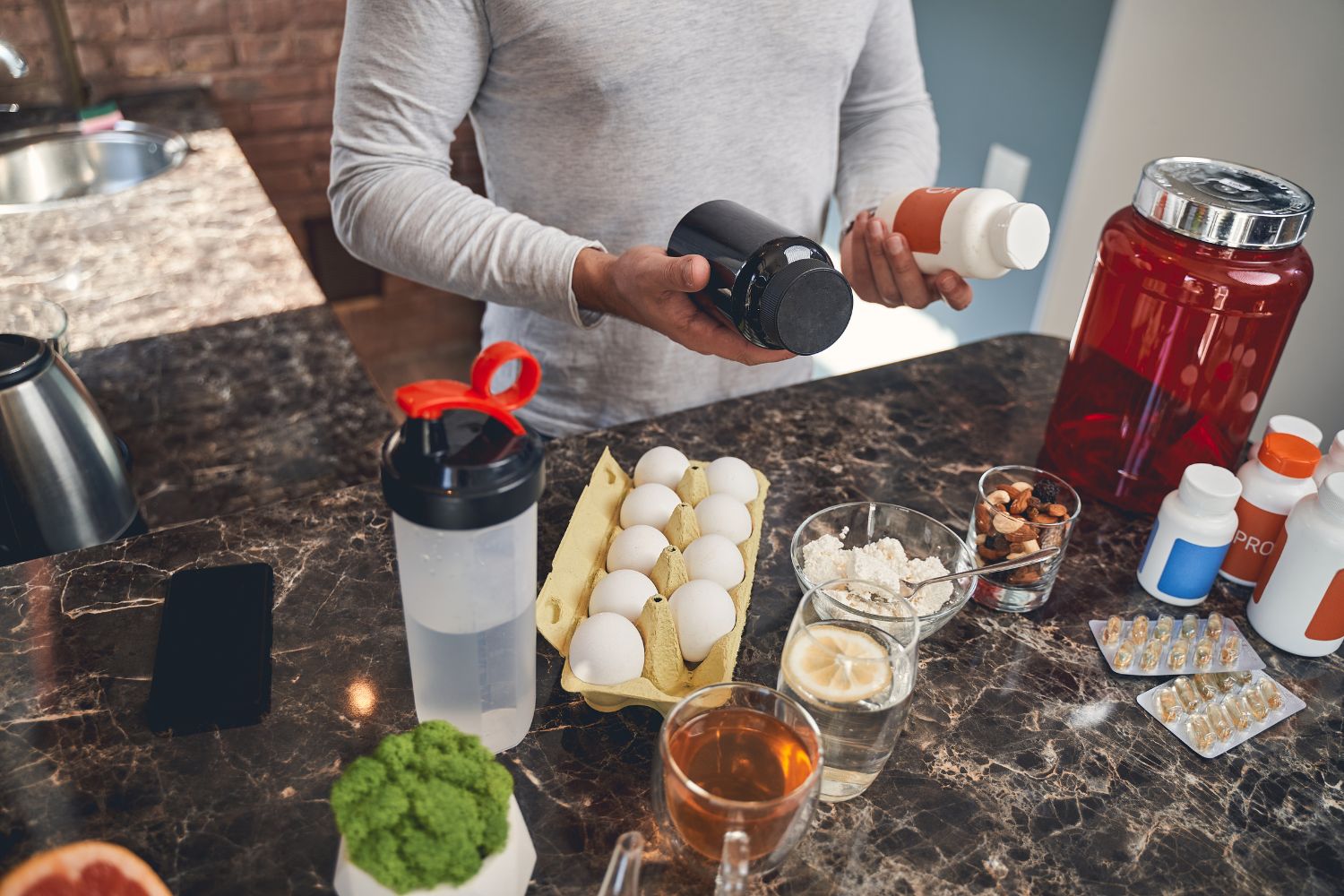
Leave a comment
All comments are moderated before being published.
This site is protected by hCaptcha and the hCaptcha Privacy Policy and Terms of Service apply.